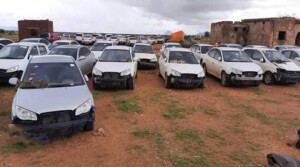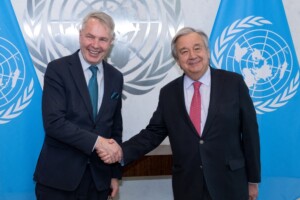Sudan laments tension between Qatar, Gulf states
The Sudanese Ministry of Foreign Affairs and the Communist Party find the decision of a number of Gulf and Arab countries to sever diplomatic relations with Qatar, who they suspect of supporting the Muslim Brotherhood ‘sorrowful’.
The Sudanese Ministry of Foreign Affairs and the Communist Party find the decision of a number of Gulf and Arab countries to sever diplomatic relations with Qatar, who they suspect of supporting the Muslim Brotherhood ‘sorrowful’.
The Ministry of Foreign Affairs has expressed its regret over the decision of Saudi Arabia, the United Arab Emirates, the Kingdom of Bahrain, Egypt, Yemen and the government of Libya to cut their diplomatic relations with Qatar on 5 June.
"Sudan is fully ready to undertake all efforts in order to achieve calm and reconciliation that would help serve the interests of the people of the region," the Ministry said in a statement.
Qatar is accused of supporting Islamist groups – the Muslim Brotherhood in particular. Sudan has called for easing tensions and official news agency SUNA reported yesterday that President Omar Al Bashir discussed the rift with the Emir of Kuwait.
On Saturday the Sudanese Communist Party said that the decision of the countries is directed against the international organisation of the Muslim Brotherhood. Fathi Fadul, the party's spokesman, said that the countries “are still complaining about the blatant interference of the Muslim Brotherhood in their internal affairs and its attempts to change the governments of these countries”.
“The Qatari regime is the guardian of international protection of the Brotherhood,” Fadul said, adding: “The question now is not what the repercussions are of this decision on Sudan alone, but also on Arab countries that participate in the organisation of the Muslim Brotherhood in their governments such as Tunisia and Morocco. These governments do not consider the Muslim Brotherhood a terrorist movement.”
Qatar plays a role in the funding of dialogue and reconciliation projects in Darfur, including the Darfur Internal Dialogue and Consultations (DIDC) process and the construction of model villages for displaced Darfuris.











 and then
and then